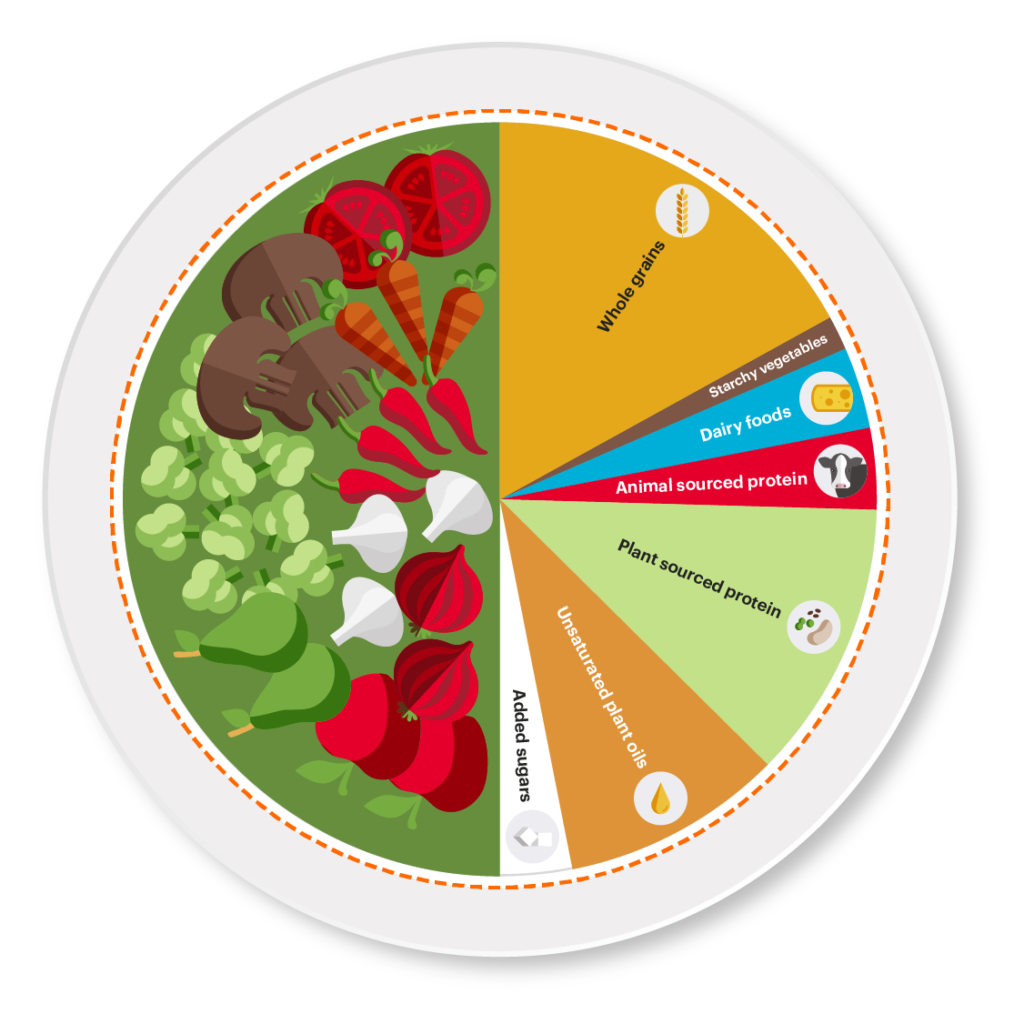
What is planetary health?
What is its relation with sustainable food systems?
Planetary health consists in attaining the highest level of health, welfare and equity worldwide through sensible management of human (political, economic, and social) systems without compromising the future of humankind or the planet’s natural systems. In simpler words: planetary health is the health of human civilisation and the state of the natural systems on which it depends. Such systems must always remain within safe environmental boundaries (Whitmee et al., 2015; Brousselle & McDavid, 2020).
Human activity has had many impacts on Earth’s natural systems. In particular, it has affected the biosphere, hydrosphere, edaphosphere, atmosphere, and geosphere, altering their composition and dynamics and resulting in an obvious problem since people’s health and welfare depend on those spheres.
WHERE COULD WE FIND A TURNING POINT IN THESE IMPACTS?
The key is the Industrial Revolution. Since then, society has mobilised to exploit resources and positively consider economic growth synonymous with well-being. This paradigm has led to population growth, increased life expectancy, reduced infant mortality, and reduced extreme poverty. Yet, it has compromised the natural environment, too (Brousselle & McDavid, 2020).
Beyond the struggle for the preservation of the environment and the sustainable exploitation of natural resources, there is a growing awareness that having a sick planet, i.e. a planet pushed to the limit without any real strategy for a cure, is increasingly lowering people’s quality of life to the point of death. Health-promoting agencies had focused their attention on social determinants and equity but too little in comparison to ecological determinants.
It also entails a problem because health’s most fundamental determinants are the natural systems that make Earth a livable planet and provide us with air, water, food, fuel and other materials necessary for life. Despite this, the very economic and social development we created to meet the social determinants of health threaten natural systems. In addition, the benefits and burdens of this development are unevenly distributed, resulting in ecological and social injustice (Hancock, 2021).
The World Health Organisation (WHO) adheres to these statements and reasserts that nature is the very source of human health. Consequently, without any doubt, the most crucial task health-promoting agencies face in the 21st century is to pay attention to planetary health.
CLIMATE CHANGE AND HUMAN HEALTH
Despite the difficulties in attributing health changes observed in a population to recent climate change, there is a pattern emerging of changes associated with climate and weather in several regions of the world. The associated risks affect humans unevenly, for they are higher in the poorest and most vulnerable areas. Besides, high rates of preexistent disease and ailments that are sensitive to climate amplify such risks. If the world warms by 3-5 ⁰C by 2100, the health consequences, directly and through massive social and economic disruption, will be severe (McMichael, 2014).
The escalating population numbers, an ever-expanding global middle class of consumers, intensified economic activity, and pervasive technologies put excessive pressure on the natural biophysical and ecological systems that form the Earth’s life support system. All this leads to planetary overload, where the well-being, health and survival of human populations and other species are at risk McMichael, 2014).
Listed below are some examples of situations that the human species will most likely suffer as a result of the new planetary conditions:
- exposure to excessive heat and radiation
- physical hazards associated with extreme weather events
- mass migration and armed conflict
- pollination disruptions
- alterations in ecosystem functioning (decoupling of species life cycles and changes in trophic relationships).
- changes in crops and yields
- health risks for livestock on which we depend
- increased transmission of infectious diseases
- disturbances in social relations and the economic sphere
- job losses or changes
- conflicts caused by the scarcity of climate-related resources (water, food, habitable land)
PLANETARY HEALTH AND EATING
To preserve planetary health, human activities must limit the use of the Earth’s resources within definite boundaries and avoid environmental degradation. In the sphere of food, agriculture occupies almost 40% of the world’s land and food production is responsible for up to 30% of global greenhouse gas emissions and 70% of freshwater use (EAT-Lancet, 2022).
Food systems thus represent a substantial use of natural resources and contribute significantly to climate change while at the same time threatening human health through food insecurity. Moreover, current dietary patterns, rich in animal products and excessive in calories, are detrimental to the population and the planet’s health (Fresan & Sabate, 2019).
Sustainable food systems are important components of a planetary health strategy (Canavan et al., 2017) to:
- enhance nutrition;
- minimise environmental footprint: the growing demand for food and the increase in meat production and consumption over the last decades amidst decreasing availability of arable land and water;
- reduce the threat of infectious diseases: the intensification of livestock production, a consequence of the previous point, has profound impacts, as does the clearing of land for agriculture because it alters ecosystems, increases human-wildlife interactions and leads to the proliferation of diseases (increased risk of zoonoses).
Along these lines, the EAT-Lancet Commission presents a global planetary health diet:

As can be seen, a plant-based diet stands out, with whole grains, fruits, vegetables, nuts and pulses accounting for a higher proportion of the food consumed. Meat and dairy constitute important parts of the diet but in significantly smaller proportions.
TO FINISH…
The daily practice of planetary health can help us to thrive by connecting with nature and the world and becoming stewards of our environment (Rogers, 2021).

